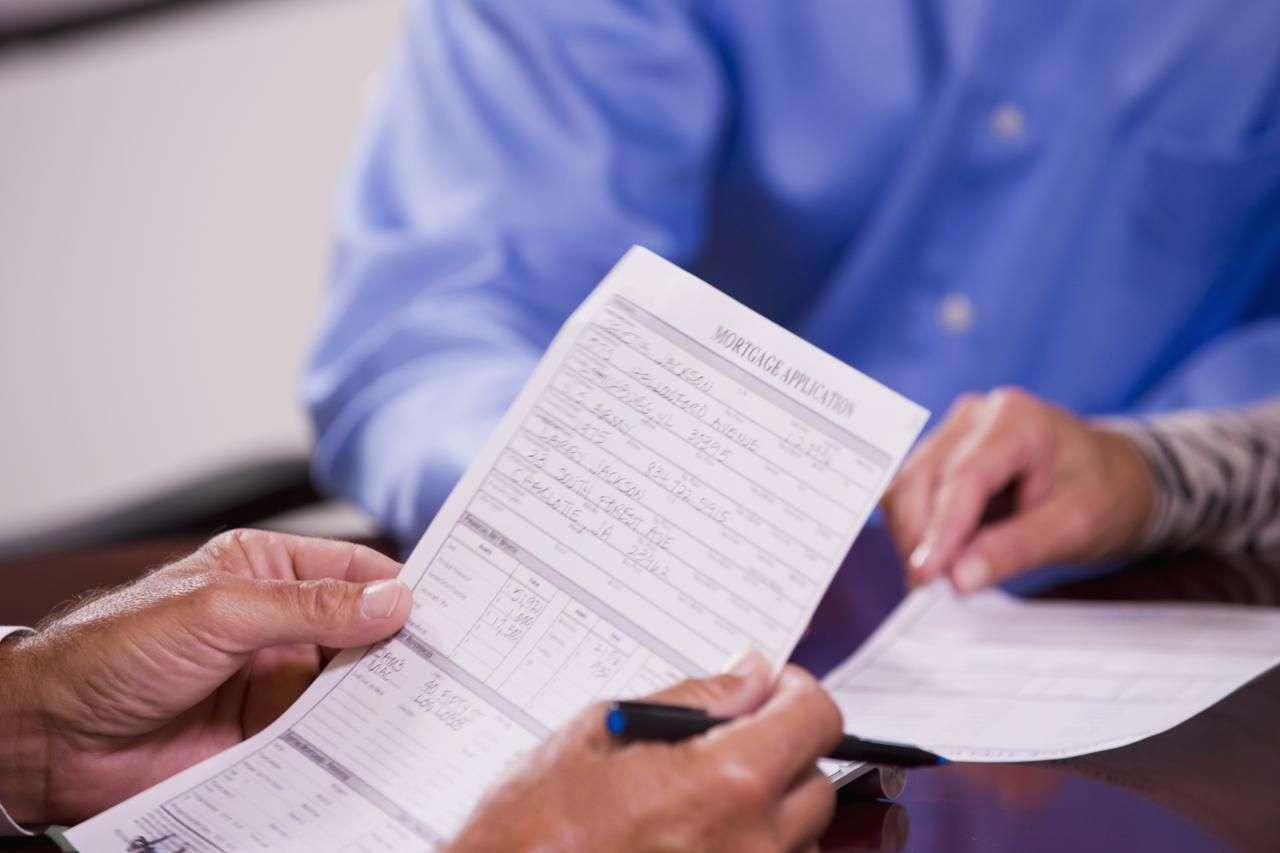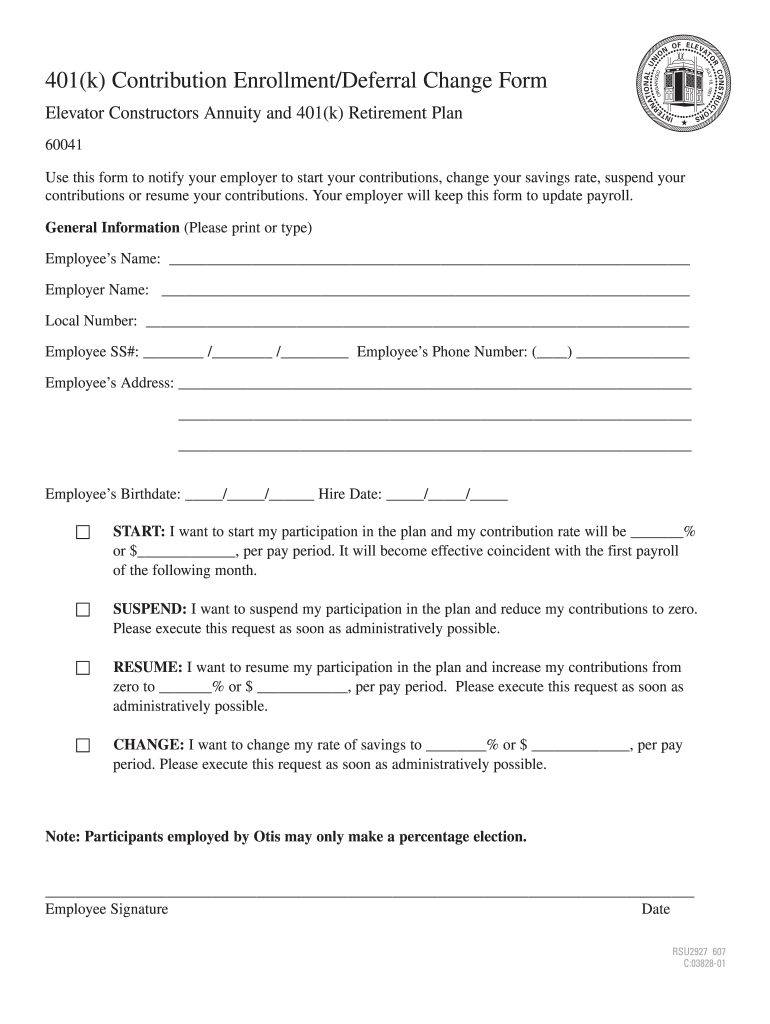Can My 401 Be Taken In Bankruptcy
ERISA-qualified plans are for the most part protected from start to finish during bankruptcy, including from creditor claims, bankruptcy proceedings, and court judgments.
This follows a change to the Bankruptcy Code enacted by the federal Congress in 2005, which declares that any ERISA retirement accounts shall be fully-protected and excluded from the bankruptcy estate, including 401 plans, 403 plans, Roth and other IRAs, Keough plans, profit-sharing plans, money-purchase plans, and defined-benefit plans.
Annuities And Life Insurance
Like the protection of homesteads, the level of protection applied to annuities and life insurance is determined by state law. Some protect the cash surrender values of life insurance policies and the proceeds of annuity contracts from attachment, garnishment, or legal process in favor of creditors. Others protect only the beneficiary’s interest to the extent reasonably necessary for support. There are also states that do not provide any protection.
Speak With A Bankruptcy Lawyer At No Cost
The bankruptcy attorneys at A Bankruptcy Law Firm, LLC exclusively handle bankruptcy cases. Bankruptcy is all we do and wed love to help you. If youre burdened with debt and youd like to save your retirement accounts, you can speak with one of our bankruptcy attorneys at no cost. Well analyze your financial situation and help you determine the best course of action. Call or fill out a contact form to schedule a free consultation today.
Important Disclaimer: The information discussed above and throughout this website should not be relied upon to make any decisions without first speaking to a bankruptcy attorney. There are many intricate rules of law governing bankruptcy with many exceptions to the general rules that could change the advice given by an attorney based on the differing facts in each persons special set of circumstances. THEREFORE, it is important to discuss any information contained in this website with one of our attorneys before taking any action or refraining from taking any action.
Bensons Bankruptcy Apps
Don’t Miss: Do Pawn Shops Loan Money
Running Up Credit Card Debt
This wont work, either. The mentality of using your available credit before filing for bankruptcy will catch up to you. After receiving the bankruptcy notification, if the creditor believes you ran up your credit-card balance before filing, it can challenge the request to eliminate some or all of what you owe him. You could end up owing money on your credit cards, even after the bankruptcy is over. Usually, any credit purchases you make within 90 days of filing for bankruptcy are not included in the bankruptcy debts. You might have to pay your credit-card debt in full and creditors could accuse you of fraudulent borrowing. To be safe, once you choose to file bankruptcy, you should stop using the credit card.
What Is A Trustee

A trustee is a person or firm that holds and administers property or assets for the benefit of a third party. A trustee may be appointed for a wide variety of purposes, such as in the case of bankruptcy, for a charity, for a trust fund, or for certain types of retirement plans or pensions.
Trustees are trusted to make decisions in the beneficiary’s best interests and often have a fiduciary responsibility, meaning they act in the best interests of the trust beneficiaries to manage their assets.
You May Like: How To Refinance An Avant Loan
Can You Lose Your Retirement Savings In Bankruptcy
STOP and speak to us TODAY!!! Under most circumstances, the money you have saved in your retirement account is 100% exempt by law, which means that creditors cannot garnish or otherwise force you to turnover any funds that are held in a qualified retirement account. Congress overhauled the bankruptcy laws in 2005, which exempted virtually all ERISA-qualified retirement accounts. Retirement accounts that are excluded from the bankruptcy estate include:
- 401s
- Defined-benefit plans
- IRAs
For the most part, you will get to keep all of the money you have saved in the above accounts. However, there are limitations placed on IRA accounts. If your IRA accounts exceed $1,362,800, then the excess amount of money above that limit can be taken by the bankruptcy court to pay creditors. This limit applies to the sum of all of your IRA accounts combined. You do not get to keep $1,362,800 per IRA account. The limit is adjusted every three years to account for any increases in the cost of living.
What Happens To My Retirement Money When I Reach Age 72
The IRS says you must begin withdrawing money from your employer plan account by April 1 following the year you turn 72 or retire, whichever is later . Withdrawals from traditional IRAs must begin by April 1 following the year you turn 72. If you dont withdraw the minimum required amount, the IRS will penalize you with a 50% tax on any amount that should have been withdrawn but wasnt. Roth IRAs are not subject to required minimum distributions.
The SECURE Act increased the age when required minimum distributions must begin from 70½ to 72, effective for individuals turning 70½ on or after January 1, 2020. If you reached age 70½ before this date, you are still required to take RMDs.
Recommended Reading: Aer Scholarship For Spouses
You Must Pay All Disposable Income Into A Repayment Plan
When you file for Chapter 13 bankruptcy, you propose a plan to pay back all or a portion of your debts. How much you’ll pay back will depend on your income, expenses, assets, and debt type. The “best effort” rule requires you to contribute all of your disposable income to your Chapter 13 repayment plan for the benefit of your unsecured creditors.
So what is disposable income? It’s any income left over after paying all expenses reasonably necessary to support you and your dependents. Of course, having unreasonably high expenses won’t get you out of paying creditors. The bankruptcy rules determine what are reasonable. Your plan won’t be determined by your actual costs.
How To Fix The Mistake:
Corrective action
It’s important that plans have a system in place to ensure that the terms of a participant loan and its repayments follow the federal tax law, so the loan isn’t treated as a taxable distribution. Generally, once a loan violates a rule, the participant can’t correct it to save that exemption. The plan administrator can make correction and preserve the exemption in a few circumstances:
- If permitted by the loan terms or written loan policy, the plan administrator may allow for a cure period that would allow a participant to make up for a missed payment. The cure period can’t go beyond the end of the quarter following the quarter in which the missed payment was due. However, the plan can allow a shorter cure period or no cure period.
- If the participant loan violated the plan document terms or IRC Section 72, the plan sponsor has two choices. It may be able to:
- use the Voluntary Correction Program to permit employees to include the loan amount in income in the year of correction , or
- request relief from reporting the loans as taxable distributions to participants from the IRS under the VCP.
Read Also: Loan Originator License California
Re: Buying Assets Back From Trustee With 401k Loan
The main reason I filed was for back taxes from divorce and such. But it took 14 yrs for them to finally lay the hammer down. You dont want to know what I owed. Cant you pass the requirments to have them DC’ed? I guess not if your going thru all this. So I assume you have a tax lien. Its so rare to get approved. There’s always the Offer of Compromise.
not
Wait For The Courts Decision
If the court rules in favor of your creditors to deny an early payoff which is common your monthly plan payment can be affected. Your monthly Chapter 13 payment amount is partially determined by your discretionary income.
An increase in income, along with unchanged costs for approved essentials, means your extra funds are viewed as discretionary income. In this situation, the court can increase your monthly payments under the plan.
Read Also: What Credit Bureau Does Usaa Use For Auto Loans
Over 60% Of Filers Do Not Complete A Chapter 13
A Chapter 13 bankruptcy is for qualified individual debtors who have an income and are willing to commit to a payback plan on a portion or all their debts, normally for 3 or 5 years. About 1 in 3 who file a Chapter 13 completes the bankruptcy process and have their case closed. The other two thirds either convert to a Chapter 7 bankruptcy or have their case dismissed.
What If My New Employer Wont Let Me Roll The Balance From My Old Plan Into My New Plan

You can move your money to a rollover IRA account, or if permitted by your former employer, you can also leave your money in your former employers plan. If you choose the latter option, you can no longer contribute to the account. With both options, your money has the opportunity to grow tax-deferred.
You May Like: What Credit Score Is Needed For Usaa Auto Loan
How To Choose Beneficiaries
A house is a valuable asset, and sometimes a cumbersome one as well. Think through various possibilities when youâre getting ready to choose one or more beneficiaries.
What Happens If I Already Took The Cash From My Account Can I Still Roll Over To An Ira Or To A New Plan
Yes, but you must do so within 60 days of receiving your distribution to keep the tax benefits. This is known as an indirect rollover.
Your employer withholds 20% of the taxable portion of your distribution for federal income taxes. State income taxes may also have been withheld.
If you replace this withholding with your own money, you can roll over the entire amount of your distribution. The IRS will apply the amount toward your tax liability for the year, and if applicable, youll get the withholding back from the IRS when you file your taxes.
If you roll over your distribution but dont replace the withholding, the amount withheld will be considered a distribution subject to taxes and possible penalties.
You can avoid this with a direct rollover, which goes straight from your old plans trustee to an IRA or your new plans trustee not through you. If the sending and receiving plan types are the same to 457 ), consider a transfer of assets, which is not a tax-reportable event.
Don’t Miss: Loans Without Proof Of Income
What Is The Downside To Filing Chapter 13
Disadvantages of Filing for Chapter 13 Bankruptcy Be aware that it can take up 5 five years for you to repay your debts under a Chapter 13 plan, and debts must be paid out of your disposable income. A Chapter 13 bankruptcy can remain on your credit report for up to 10 years, and you will lose all your credit cards.
Icipant Loans Don’t Conform To The Requirements Of Irc Section 72
Many 401 plans permit loans to participants. Plan sponsors should ensure that their plan document allows loans before allowing participants to borrow money from the plan. Some plan documents include a complete description of loan rules. Others make only a statement that the plan allows participant loans, subject to a separate written loan program.
A participant loan must meet several rules under IRC Section 72, so the loan is not treated as a taxable distribution. The rules are:
1. The loan must be a legally enforceable agreement.
- It can be a paper or electronic document stating the date and amount of the loan and binding the participant to a repayment schedule.
- It must be a secured loan and the interest rate and repayment schedule should be similar to what a participant might expect to receive from a financial institution.
2. The amount of the loan can’t be more than 50% of the participants vested account balance up to a maximum of $50,000.
- An exception allows a participant to borrow a minimum of $10,000.
- If the participant previously took out another loan, then the $50,000 limit is reduced by the highest outstanding loan balance during the one-year period ending on the day before the new loan.
3. The loan terms should require the participant to make level, amortized payments at least quarterly.
4.There is an exception to the rules for a leave of absence:
Also Check: How To Transfer Car Loan To Another Person
Bankruptcy Affects All Aspects Of Your Life Including The Money Youve Saved Over The Years
This is especially true if youve used any retirement savings, including a loan from a 401 plan, to help you avoid filing for bankruptcy. Sometimes, the last-ditch attempts you make to avoid filing dont work out and youre left dealing with a more complicated filing situation than if youd committed to filing months or years ago.
The good news is a bankruptcy attorney can help you sort through your situation and make the most of your bankruptcy opportunity.
What do you need to know if you borrowed against your 401 and youre now filing for bankruptcy?
Should You Use A 401 Loan To Pay Off Debt
So is it even a good idea to use a loan against your retirement savings to pay off debt?
Probably not. Especially not if it wont completely eliminate all of your debt.
The primary reason for this is because any money taken from your retirement savings is no longer eligible for protection under bankruptcy. The money can also be used against you when it comes to the bankruptcy MEANS test. Its possible someone who qualified for Chapter 7 debt discharge would be unqualified based on the money borrowed from their 401.
Its also important to remember that if you borrowed against your retirement savings and chose to pay off the loan right before filing for bankruptcy, your trustee could undo the transfer and use that money to pay other creditors. Repaying the loan is essentially repaying yourself and some trustees are going to view that as a lower priority debt than your other creditors.
The key to a successful bankruptcy is to understand your options and be informed enough to make the best choice based on your circumstances. The last thing you want to do is misuse your retirement savings and create lifelong problems for yourself financially.
If you have questions about your 401 and bankruptcy, or you have a 401 loan and you arent sure how it will be affected by bankruptcy, we can help. Contact the Law Office of Robert M. Geller at 813.254.5696 to schedule a consultation.
Don’t Miss: What Car Can I Afford Calculator
What Is Considered Disposable Income In A Bankruptcy Case
In Chapter 13 bankruptcy, you work with your lawyer and trustee to come up with a realistic plan for paying down your debts. For the repayment plan to be approved by the court, it must show the best effort to decrease the accumulated debt. This means that as much of your disposable income as possible will go towards paying down the unsecured debt.
Disposable income, according to bankruptcy law, is more limited than what you might think. This is the amount of income that is left after taxes, health insurance deductions, necessary living expenses and required payments have been taken out. Required payments in a Chapter 13 case will likely include the monthly amounts due for secured debt and priority debt . The disposable income that remains will go towards unsecured debt. This includes personal loans, credit cards and medical bills.
Can You Withdraw Money From Your 401k Before Or During Your Bankruptcy

There are certain things a debtor should not do before filing bankruptcy.
I will occasionally have a bankruptcy client ask me if she should withdraw money from her 401k before filing bankruptcy. I also have received questions about whether it is ok to take out of a 401k after filing bankruptcy. My answer is always that is a bad idea, but the reasoning as it pertains to a Chapter 7 or Chapter 13 bankruptcy is slightly different, so I will now tackle each one separately.
There are two reasons why it is a bad idea to withdraw from a 401k before filing bankruptcy. The first one is not specific to bankruptcy, but rather to general retirement and tax planning. The penalties associated with an early 401k withdrawal, plus the reduction in your retirement savings, truly make this an option of last resort.
Therefore, the only time I could endorse this strategy in any way is if the debtor is using the money to pay off creditors and avoid filing bankruptcy. I basically would never endorse a 401k withdrawal if it doesnt resolve the debt situation.
The second factor in withdrawing from a 401k prior to bankruptcy is the impact on the bankruptcy itself. Money saved in a 401k is exempt in bankruptcy and cannot be taken by the bankruptcy trustee. However, when it is converted into cash before filing bankruptcy, it loses its exempt status and becomes a non-exempt asset in the form of cash.
Don’t Miss: How Long For Sba Loan Approval
